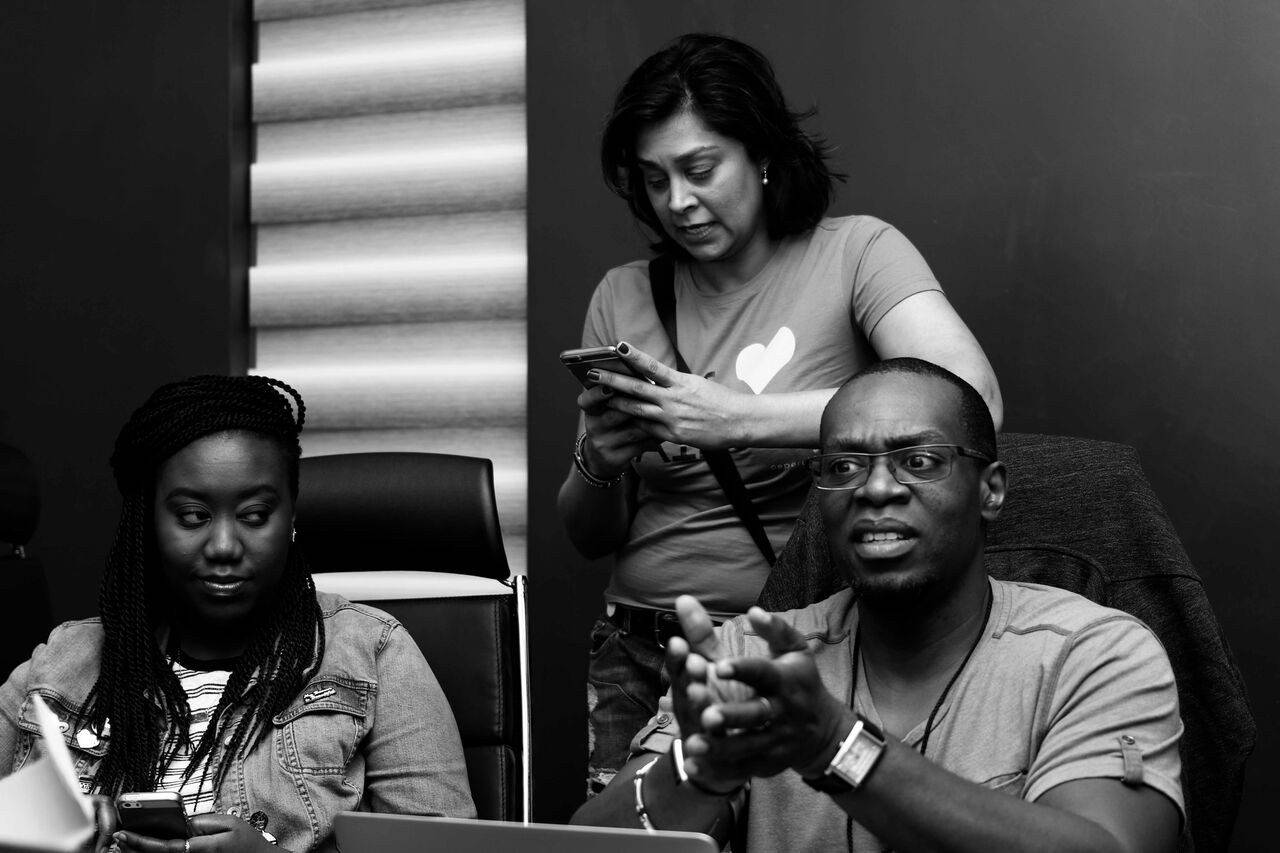African Content/Creative Startup Bites The Dust After Botched USD 350 K Gig

Chidi Afulezi, co-founder of the now-defunct aKoma, summed it up in a recent post announcing the demise of the four-year-old media and creative platform with these words:
“Building a content and creative business is daunting. Doing it in Africa is maddening. Yes, I said it. Africa is no joke.”
Former CNN correspondent, Zain Verjee, and Nigerian-born tech crusader, Chidi Afulezi, co-founded aKoma in January 2015 with the aim of building a creative and media business in and for Africa.
But after facing a host of problems while attempting to get aKoma to really take off, the startup has been shuttered, adding to the body count of dead content and creative businesses on the continent — an indication of the shrapnels that litter this path.
The platform, aKoma, started out as an online platform that provides digital storytelling and content publishing solutions to its users. It enabled its users to view, upload, and share stories about Africa.
With many years of experience in media, entertainment, tech, and creative business between them, Verjee and Afulezi embarked on launching a platform that they thought would enable and unleash Africa’s talent on the world.
Buoyed by the mantra: “The most important person in Africa is the storyteller”, aKoma sought to solve the problem of the “dark continent” narrative, as well as pull down the severe limitations that the African creative faced in crafting the stories and building the platforms to counter and rewrite that myopic narrative.
Before aKoma, both Verjee and Afulezi were cutting their teeth in the corporate world. Verjee was born and raised in Kenya. She joined CNN in 2000 and put in 14 years of ground-breaking, award-winning work. Before CNN, she was a newsreader on Kenya Television Network, Nairobi, and a DJ for Capital FM.
On his part, Afulezi had served in an assortment of product executive roles with tech and media companies including Turner Broadcasting, Time Warner, Sony Music, and AT&T Wireless.
Prior to aKoma, he had done some work in tech startup circles abroad having co-founded The Core Venture Studio – a startup studio, and Collider – a co-working space in Atlanta’s Tech Square.
It looked like a winning combination. By developing a platform that financed and exhibited African visual, written, and spoken storytelling, much value would be created. But things didn’t go quite as hoped or as planned.
First, funding didn’t come easy despite having the ears of some very powerful funding networks.
“It quickly became clear that having the words Africa, creative, and business in your pitch were death chimes,” Afulezi revealed.
“We got no love from African movers and shakers. Forget the Americans and Europeans (“did you say Africa and creative economy? How does that even work? How would they consume the content?”). Even with a business and financial model that I constructed that would scatter Elon Musk’s brain…eyes glazed over,” he wrote.
Both co-founders eventually dug into their own pockets to fund building the aKoma platform. One of the rare wins came when they secured USD 500 K from Mastercard Foundation in 2016 to create and run Amplify, a talent accelerator for African creatives.
But building a content and creative business in Africa was always going to be a big challenge and the handwriting had been on the wall for a while.
“Chidi, we need to end aKoma. It’s time,” Afulezi recalled those very words from Varjee sometime in 2019.
The final blow came when aKoma scored a USD 350 K content creation gig with one of the most important financial organisations in Africa. This was a 5-month contract that was supposed to boost the startup but it turned out to be such a bummer.
“Long story short, it dragged on for almost 15 months, the scope and scale of the work changed, and as a small startup with very limited working capital, we had to take loans from family and friends and Kabbage to fulfill the contract,” Afulezi wrote.
“It was the darkest and most stressful time of our aKoma lives, and we knew that aKoma was pretty much over as we haggled and struggled to get our invoices paid.”
He added, “We were distraught that the creatives we hired to work with us were suffering as the organization delayed payment, and we decided that we were no longer going to be in the content production business in Africa. This project broke and bankrupted aKoma.”
According to the co-founder, the startup bit the dust because of lack of support, the continued broken promises from people who claimed undying support, the financial hits, and personal stress.
The aKoma demise is an unfortunate situation but not an isolated one. In January this year, Kenyan media company, Hivisasa, closed shop after six years. The content startup had been reporting on Kenyan counties and national politics and delivering several other kinds of hyperlocal content through its network of 1500+ freelance writers.
According to Hivisasa’s co-founder and CEO, Chloe Spoerry, the media company called it quits because it had been unable to identify a viable path to significant revenues and profitability via its advertisement-led business model.
Hivisasa was famously piloted in 2012 by the seed fund, 88mph, and officially launched in January 2014. In June 2015, Luminate and Novastar Ventures invested in Hivisasa.
On a similar note, Zumi, a popular digital media company in Kenya, was forced to quit the business in November 2019 after failing to cut it.
Launched in 2016, Zumi had raised over USD 250 K from UAE-based Majlis Investment and a few other investors. Founded by ex-Rocket Internet employees, William McCarren and Sabrina Dorman, Zumi was planning to pivot into an eCommerce platform as advertising revenue didn’t pick up.